12 Birds You Do Not Want Near Your Garden and Why They Can Be Harmful
Birds can be a lovely addition to any garden, but not all of them are helpful. Some birds may cause more harm than good by eating crops or disturbing your plants. These birds are often attracted to the resources your garden offers. Keeping them away from your garden can prevent damage and help protect your plants. Understanding which birds to avoid will make maintaining a healthy garden easier.
This post may contain affiliate links, which helps keep this content free. Please read our disclosure for more info.
Crows
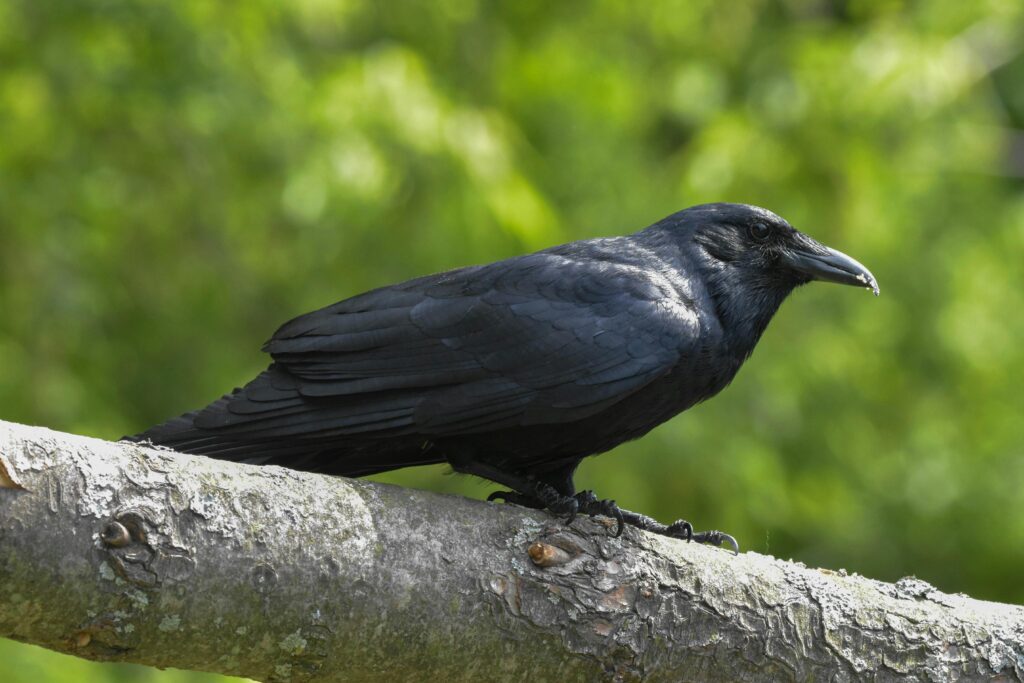
Crows are known to be intelligent birds, but they can also cause significant damage to gardens. They often scavenge for food, digging up seeds, bulbs, and young plants. Crows may also prey on fruits and vegetables, leaving behind a mess of partially eaten crops. To discourage them, you can use scare devices such as reflective surfaces or predator decoys, and cover your plants with netting.
Since crows are highly adaptable, they may become accustomed to scare tactics over time. Installing motion-activated sprinklers can help keep them away, as they dislike being sprayed with water. Ensuring your garden is free of food scraps and waste can also reduce the attraction for crows. Regularly changing your deterrents will help prevent crows from returning.
Pigeons
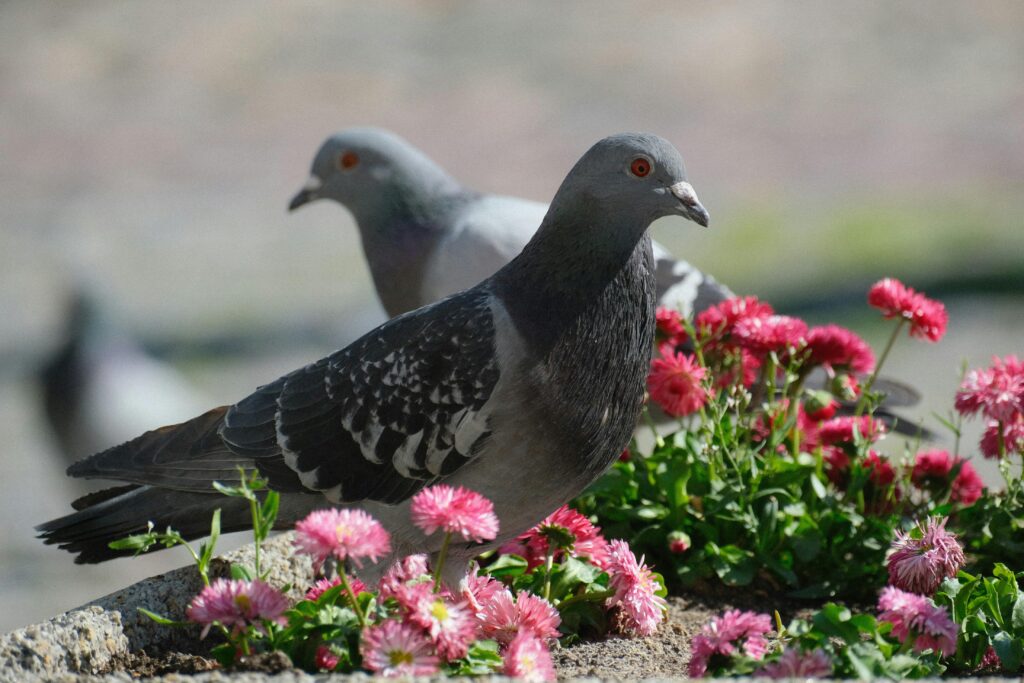
Pigeons can be a nuisance in gardens, often roosting on structures and leaving droppings on plants and furniture. They can also eat seeds, plants, and fruits, damaging crops in the process. Pigeons tend to settle in areas where they find food, water, and shelter. To keep them out, cover plants with netting and install bird spikes on ledges where pigeons like to perch.
Pigeons may be discouraged by reflective surfaces or sound devices that mimic predators. Keeping your garden tidy and removing accessible food sources will make it less appealing to them. If pigeons have already taken residence in your area, consider calling a professional to remove nests safely. Regularly changing deterrents will also help prevent their return.
Starlings
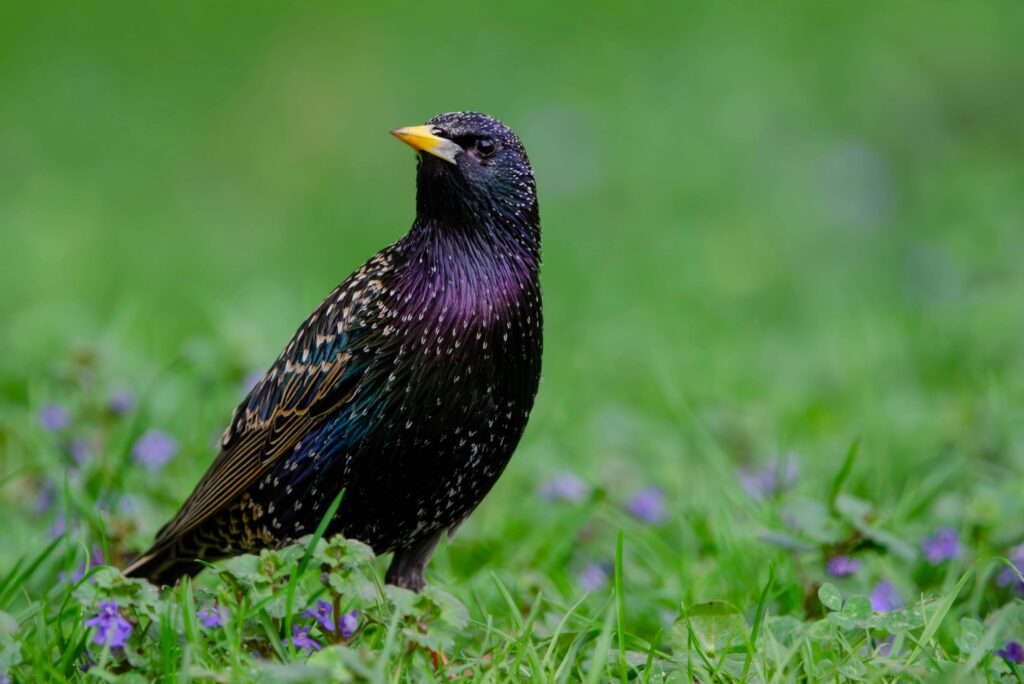
Starlings are aggressive birds that often compete with other species for food and nesting sites. They are known to destroy fruit crops and peck at young plants, causing considerable harm. Their droppings can also damage plants and attract pests. To prevent starlings from invading your garden, you can use mesh netting or bird spikes to keep them away from your plants.
Starlings are also attracted to bird feeders, so it is important to keep feeders well-maintained and out of reach. Reflective objects or hanging aluminum foil can also help deter them. Installing physical barriers, such as birdhouses designed for other species, can provide alternative nesting sites that are less appealing to starlings. Regularly changing your deterrents will make your garden less inviting for them.
Robins
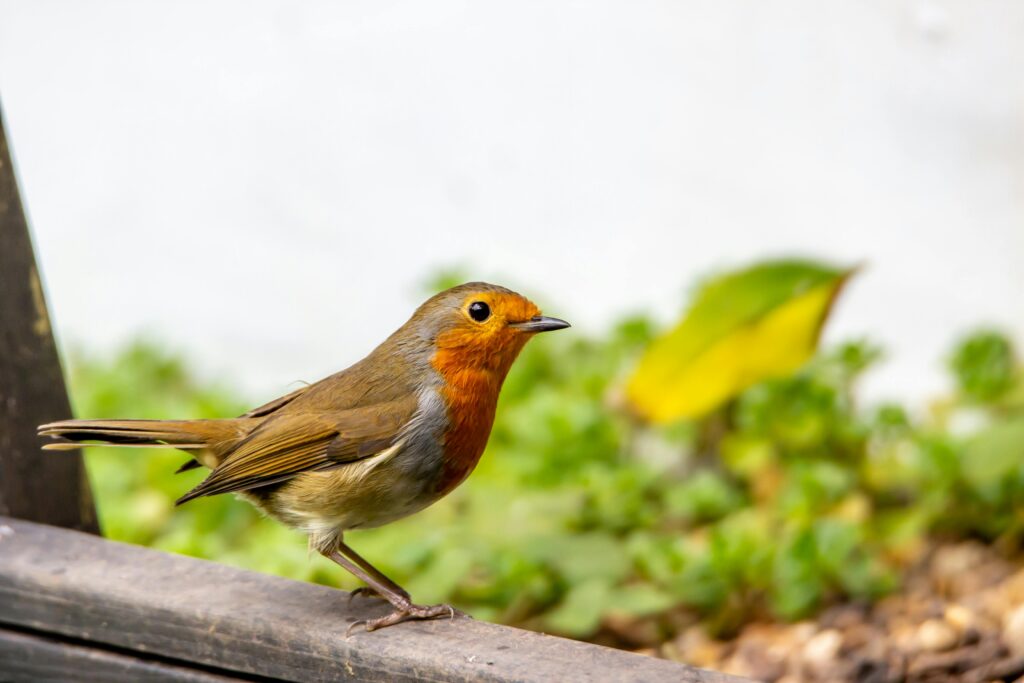
While robins are often seen as friendly birds, they can be a problem in gardens, especially during nesting season. They may dig up freshly planted seeds and eat berries and fruits. Robins are also known for tearing at the soil, damaging young plants and disrupting mulch. To keep robins away, consider using bird netting or reflective deterrents to protect your plants.
Robins are also attracted to worms, which can be found in moist soil. Avoid over-watering your garden, as this makes the soil more attractive to robins. Installing scarecrows or using wind chimes can help to make your garden less appealing to them. Removing fallen fruit and berries regularly will also discourage robins from lingering.
Sparrows
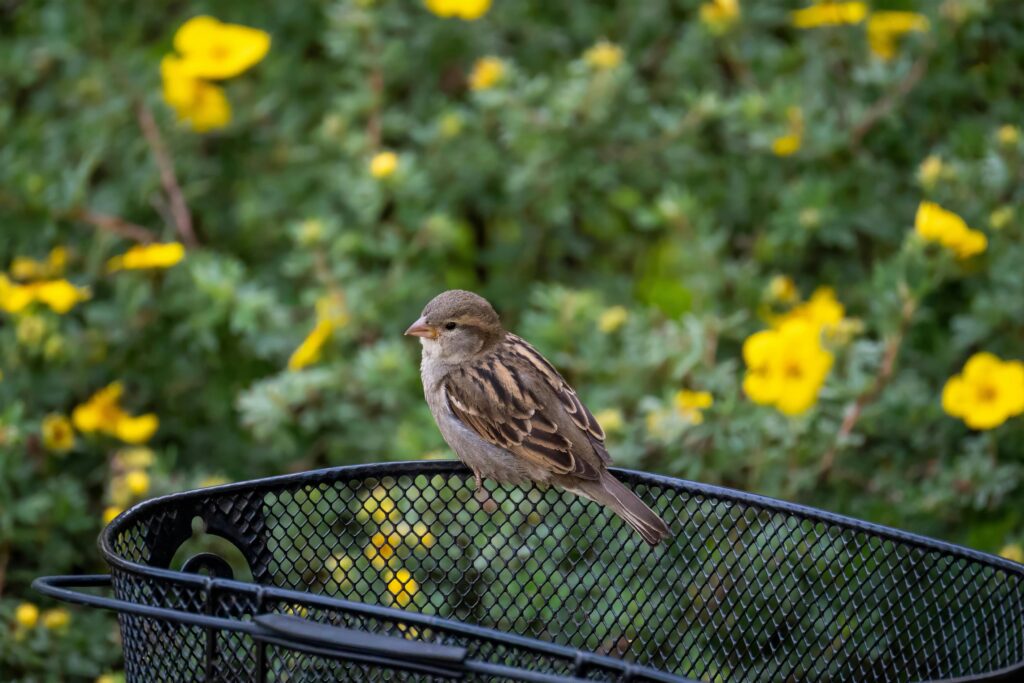
House sparrows are small birds that often gather in large flocks, making them particularly destructive in gardens. They feed on seeds, berries, and young plants, causing significant damage to crops. Sparrows also tend to build nests in garden structures, which can result in further damage over time. To keep sparrows out, consider using bird netting or placing birdhouses in more suitable locations away from your plants.
Sparrows can also be deterred by installing decoys of predators, such as owls or hawks. Removing food scraps and ensuring that your garden does not provide easy access to food will help discourage them. Sparrows are often attracted to bird feeders, so it is wise to use feeders that are designed to limit access to larger birds. Regularly changing the location of deterrents will keep sparrows from becoming accustomed to them.
Blackbirds
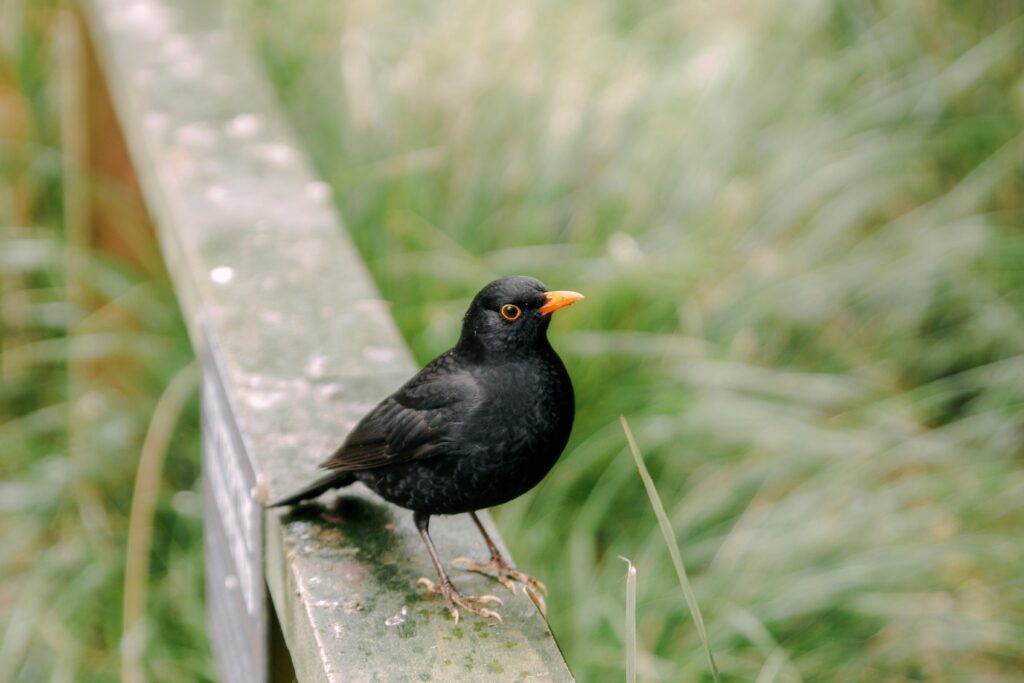
Blackbirds are known to eat a wide variety of fruits, vegetables, and seeds, making them a major problem for gardens. They tend to peck at berries and tear apart young crops, causing damage to your hard work. Blackbirds also like to nest in trees and shrubs, where they can disrupt the growth of your plants. You can keep them out by covering fruits with mesh or netting and installing bird spikes on your garden structures.
Using scare tactics, such as noise makers or reflective objects, can also help deter blackbirds from your garden. Ensure that there are no food scraps left on the ground, as this can attract them. In addition, removing nesting materials or trimming branches that could serve as nesting sites will make your garden less attractive to blackbirds. Regularly updating your deterrents will make your garden more difficult for them to invade.
Canada Geese
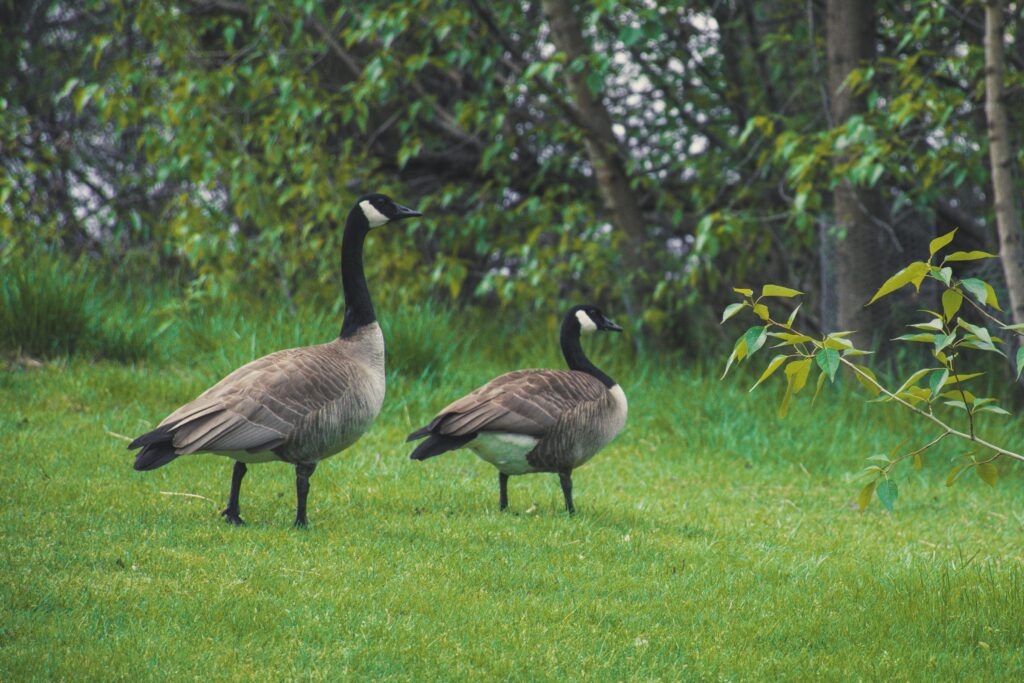
Canada geese are large birds that can cause significant damage to gardens and lawns. They are known for grazing on grass, which can result in bare patches, and they may also eat plants and flowers. Their droppings can lead to soil contamination and attract pests. To keep them away, you can install fencing or use motion-activated sprinklers to scare them off.
Canada geese are territorial and often return to the same spots each year. Keeping your garden free of accessible food and water sources can help prevent them from visiting. Some people use decoys of predators to discourage the geese, as they are naturally wary of larger animals. Regularly moving your deterrents around will prevent the geese from getting used to the same tactics.
Grackles

Grackles are large, noisy birds that are known to steal food and damage plants. They tend to feed on seeds, fruits, and berries, often eating large quantities in a short period. Grackles are also attracted to trash and spilled food, making them even more of a nuisance in gardens. To keep them out, consider using bird netting to protect your crops or placing reflective objects to scare them away.
Grackles prefer wide-open spaces with little cover, so trimming back overgrown shrubs and trees can discourage them from roosting in your garden. Ensuring that food sources are well-protected or removed will make your garden less inviting to these birds. You can also use sonic devices or other sound-based deterrents to keep them at bay. Regular maintenance of deterrents will help keep grackles from returning.
Woodpeckers
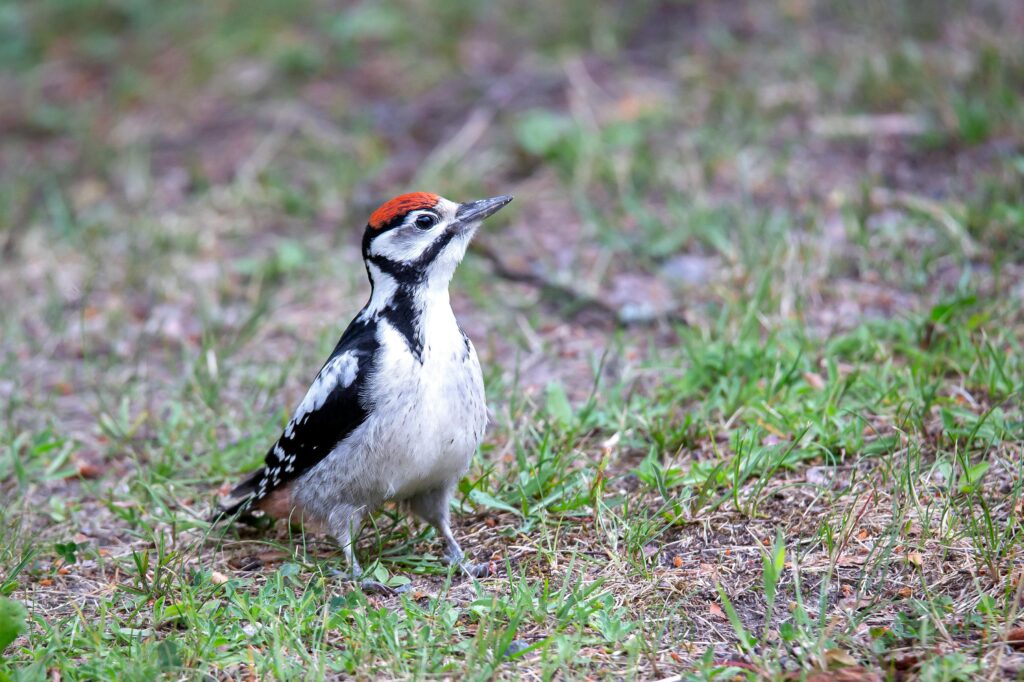
Woodpeckers are known for their loud drumming and the damage they cause by pecking at trees and wooden structures. They may cause harm to your garden’s trees by drilling holes into them in search of insects or creating nests. Additionally, woodpeckers may also eat seeds and berries, further damaging your crops. To keep them away, you can use bird netting or protective tree wraps around vulnerable trees.
Woodpeckers are attracted to the sound of insects beneath the bark, so ensuring your trees are healthy and free of pests can help deter them. Reflective surfaces, such as aluminum foil or shiny tape, can be used to dissuade them from perching. Placing birdhouses away from your garden area may also prevent them from using your trees as nesting sites. Changing your deterrents frequently will stop woodpeckers from getting used to them.
Jays
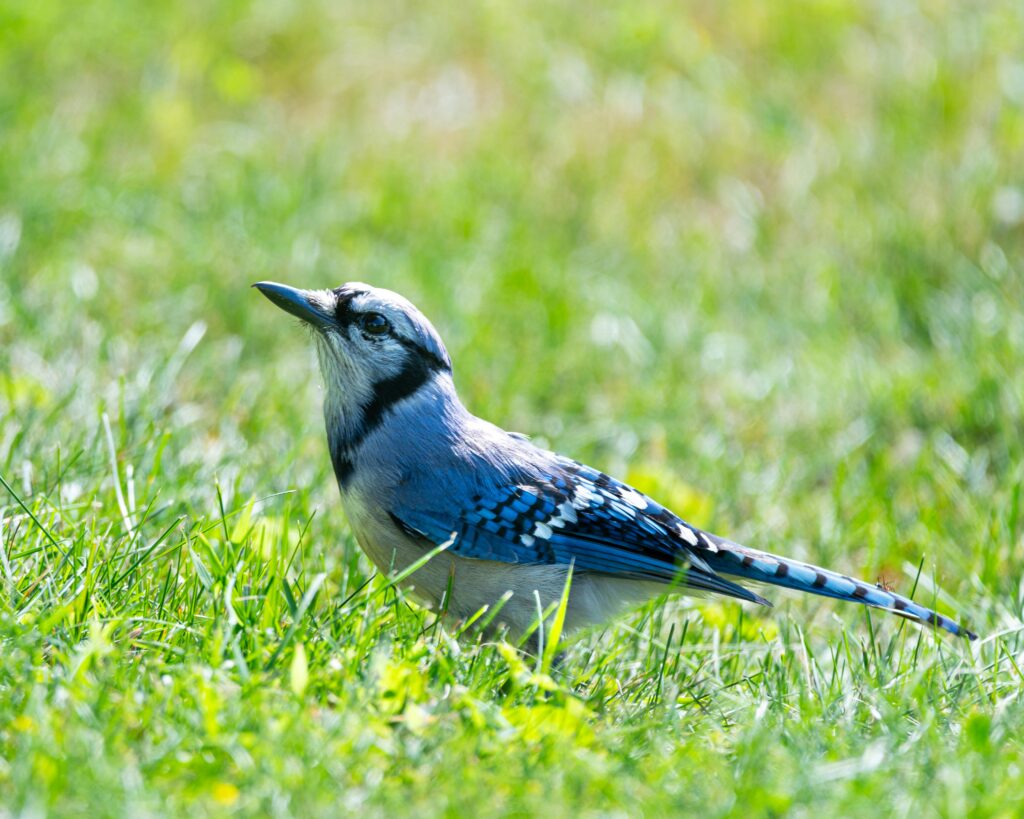
Blue Jays are intelligent birds that can be a major nuisance to gardeners. They are known to raid fruit trees, tearing off branches to reach the fruit, and can damage crops by eating them. Jays are also known to be noisy, which can disrupt the peaceful atmosphere of your garden. To keep them out, consider covering fruit trees with netting or using decoys to create the appearance of predators.
Blue Jays are attracted to large, open spaces, so limiting areas of your garden where they can perch or nest will help reduce their presence. They are also fond of nuts and seeds, so storing these food items securely will make your garden less appealing. Using loud noise deterrents or visual scare tactics, like scarecrows, can help discourage them from visiting. Regularly moving or changing deterrents will keep Jays from becoming accustomed to them.
House Sparrows
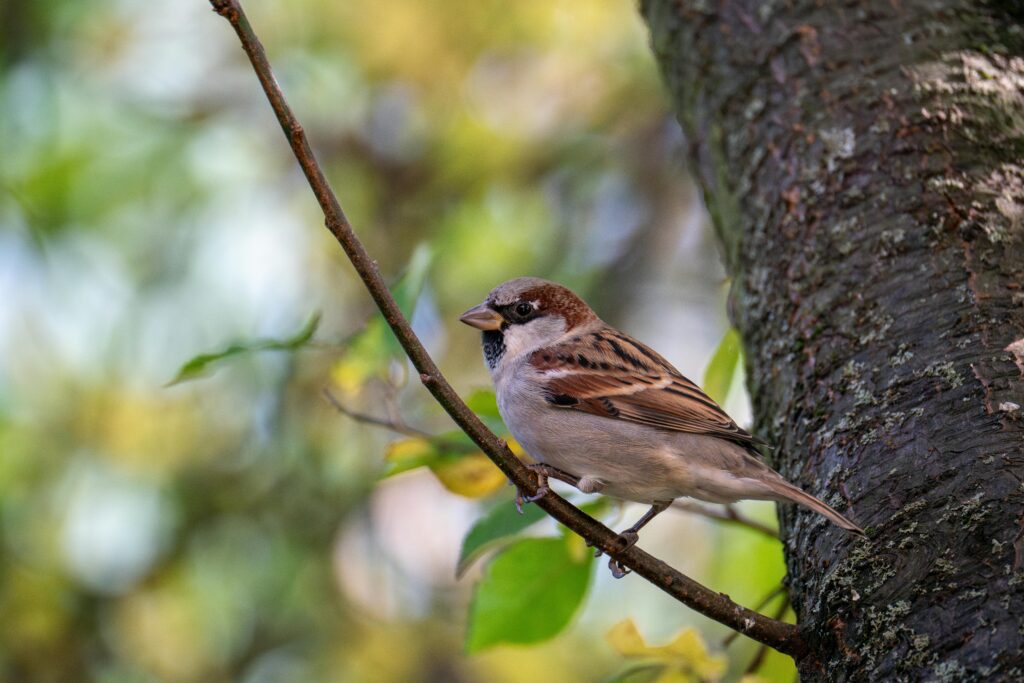
House Sparrows are small but persistent birds that can cause significant problems in gardens. They often feed on seeds, fruits, and young plants, making them a common pest in vegetable gardens. Sparrows may also nest in garden structures, further damaging plants and making a mess. To protect your plants, consider using mesh or netting to keep sparrows away from your crops.
Sparrows are attracted to food sources like bird feeders, so keeping these well-maintained and out of reach is important. Installing birdhouses in more suitable areas can provide nesting sites away from your garden. Visual deterrents, such as reflective tape or predator decoys, can help keep sparrows at bay. Changing the location of deterrents will prevent sparrows from getting used to them.
Peafowl (Peacocks)
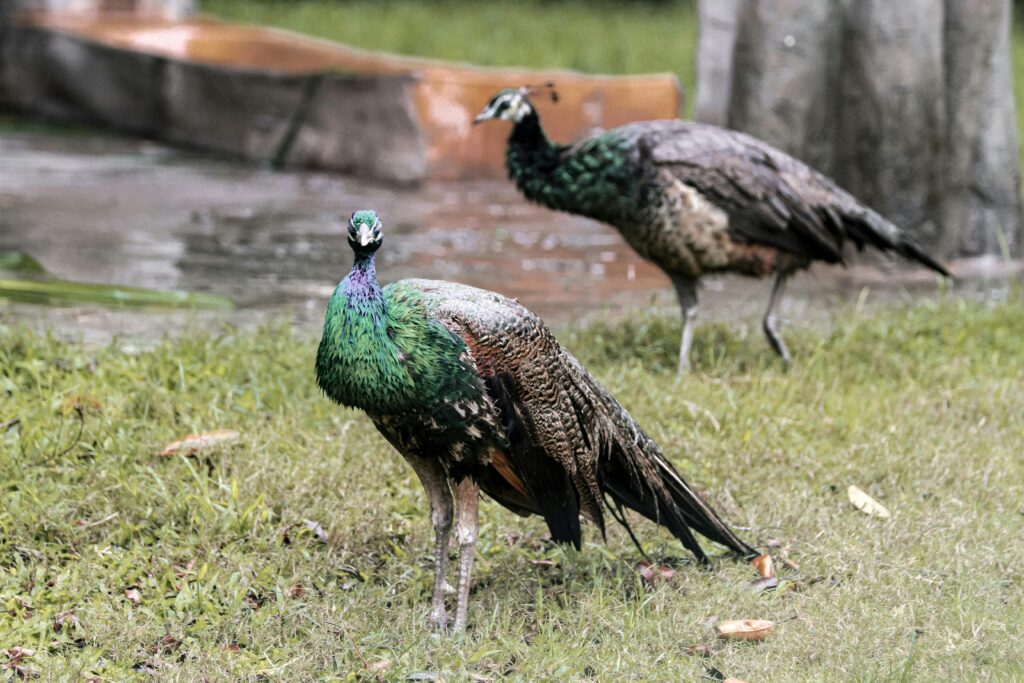
Peacocks can be a striking sight in the garden, but they can also be very destructive. They are known for pecking at plants, particularly flowers and young shoots, and their droppings can contaminate the soil. Peafowl also have the tendency to eat fruits and vegetables, causing damage to crops. To keep them out, you can install tall fencing around your garden or use natural repellents.
Peafowl are often attracted to areas with large open spaces, so planting taller shrubs and trees around your garden can provide natural barriers. They also dislike strong scents, so using garlic or hot pepper spray around your plants can deter them. Installing motion-activated sprinklers can scare them away without causing harm. Regular maintenance of your deterrents will help keep these birds from returning.
While birds can add beauty to any garden, some can cause significant harm to your plants. Knowing which birds to watch for and how to discourage them will help you maintain a healthy, thriving garden. With a few practical measures in place, you can keep your garden safe and beautiful all year long.
This article originally appeared on Avocadu.
